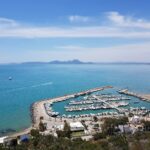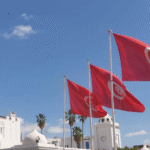Benefits of Living in Tunisia

Nestled at the northern tip of Africa, a stone’s throw from Europe, Tunisia is a land of captivating contrasts. From sun-drenched Mediterranean beaches to ancient Roman ruins, bustling souks to serene desert landscapes, this North African gem offers a unique tapestry of experiences. While often celebrated as a tourist destination, Tunisia is increasingly gaining recognition as an ideal place to call home, attracting expatriates, digital nomads, and retirees seeking a high quality of life at an accessible cost.
But what truly makes living in Tunisia so appealing? Beyond the picturesque postcards, a deeper dive reveals a multitude of benefits that cater to diverse lifestyles and preferences. This comprehensive guide will unveil the compelling reasons why Tunisia might just be your next perfect home, covering everything from its enviable climate and stunning natural beauty to its surprisingly affordable living costs, robust medical support, and rich cultural heritage.
1. Unbeatable Affordability: Your Wallet’s Best Friend
One of the most significant drawcards for anyone considering a move to Tunisia is the remarkably low cost of living compared to Western Europe or North America. This affordability doesn’t come at the expense of quality; instead, it allows residents to enjoy a comfortable, often luxurious, lifestyle without breaking the bank.
Cost of Living Breakdown:
- Housing: Whether you’re looking for a modern apartment in a vibrant city like Tunis, a charming traditional house in Sidi Bou Said, or a spacious villa by the sea in Hammamet, rental prices are incredibly reasonable.
- A comfortable one-bedroom apartment in a good neighborhood in Tunis can range from 500 TND to 1000 TND (approximately $160 – $320 USD) per month.
- Larger apartments or houses in popular coastal towns might range from 800 TND to 2000 TND ($260 – $650 USD), offering significant value.
- Property ownership is also a viable option, with prices per square meter considerably lower than in most European cities.
- Food: Eating well in Tunisia is not only delicious but also incredibly economical.
- Groceries: Local markets (souks) offer an abundance of fresh, seasonal produce, meat, and seafood at incredibly low prices. A week’s worth of groceries for one person can easily be managed for 100-150 TND ($32 – $50 USD). Supermarkets, while slightly pricier, still offer great value.
- Dining Out: A meal at a local restaurant (often serving generous portions of traditional Tunisian fare) can cost as little as 10-20 TND ($3 – $6 USD). Even in mid-range restaurants, a three-course meal for two might set you back 50-80 TND ($16 – $26 USD).
- Transportation: Getting around Tunisia is very affordable.
- Public Transport: Buses, shared taxis (louages), and the metro in Tunis are extremely cheap, with fares often just a few dinars.
- Taxis: Taxis are metered and widely available in cities, offering a convenient and inexpensive way to travel short distances. A typical ride across a city might cost 5-15 TND ($1.60 – $5 USD).
- Fuel: Gasoline prices are subsidized, making car ownership and travel by car relatively inexpensive.
- Utilities: Electricity, water, and gas bills are generally low, especially outside the peak summer months when air conditioning usage increases. Internet services are also reasonably priced, with fiber optic options available in urban areas.
- Entertainment & Leisure: From cinema tickets (around 12-15 TND) to gym memberships (50-100 TND per month), leisure activities are budget-friendly. Exploring historical sites, national parks, or enjoying a traditional hammam experience won’t strain your finances.
This overall affordability means that your savings can stretch much further in Tunisia, allowing for more travel, more dining out, or simply a greater sense of financial freedom.
2. A Climate for Every Season: Tunisia’s Inviting Weather
Tunisia boasts a quintessential Mediterranean climate, characterized by long, hot, and dry summers, and mild, wet winters. This agreeable weather is a major draw for those seeking an escape from colder, harsher climates.
- Summer Bliss (June-September): Summers are undeniably hot, with temperatures often soaring above 30°C (86°F), particularly in July and August. However, the coastal areas benefit from refreshing sea breezes, making the heat more bearable. This is the perfect time for beach lovers, water sports enthusiasts, and sun worshippers.
- Mild Winters (December-February): Unlike many European countries, Tunisian winters are short and mild. Daytime temperatures rarely drop below 10°C (50°F), and sunny days are common. While there might be some rain, it’s generally short-lived. This season is ideal for exploring historical sites, hiking, or enjoying the cities without the summer crowds.
- Spring & Autumn Delights (March-May & October-November): These shoulder seasons are arguably the most pleasant times to be in Tunisia. Temperatures are comfortably warm, typically ranging from 20°C to 28°C (68°F to 82°F), with plenty of sunshine and minimal rainfall. The landscapes are lush and green in spring, and the autumn offers a gentle transition, perfect for outdoor activities and sightseeing.
The abundance of sunshine throughout the year positively impacts mood and well-being, allowing for an active, outdoor-oriented lifestyle almost year-round.
3. Coastal Paradise: The Allure of Tunisia’s Beaches
With over 1,300 kilometers (800 miles) of coastline along the Mediterranean Sea, Tunisia is a beach lover’s dream. From bustling tourist resorts to secluded coves, the country offers a diverse array of sandy shores and crystal-clear waters.
- Diverse Coastlines:
- Northern Coast: Rugged cliffs, hidden coves, and pristine, less-crowded beaches near cities like Bizerte and Tabarka, perfect for those seeking tranquility and natural beauty.
- Eastern Coast (Sahel): Home to the most popular tourist destinations like Hammamet, Sousse, and Monastir, featuring long stretches of fine golden sand, calm waters, and a wide range of resorts and water sports facilities.
- Southern Coast (Djerba & Zarzis): The island of Djerba is famous for its idyllic, shallow, turquoise waters and powdery white sand, making it ideal for families and relaxation.
- Water Activities Galore: The warm Mediterranean waters are perfect for swimming, snorkeling, diving, jet-skiing, parasailing, and sailing. Many beaches offer equipment rentals and lessons for various water sports.
- Relaxation & Recreation: Beyond active pursuits, Tunisian beaches are perfect for simply unwinding, soaking up the sun, or enjoying a leisurely stroll along the shore. Many beachside cafes offer refreshments and snacks, allowing you to spend an entire day by the sea.
Living in Tunisia means having easy access to these stunning coastal escapes, providing endless opportunities for relaxation and recreation right on your doorstep.
4. Healthcare & Well-being: Quality Medical Support
The quality of medical support in Tunisia has seen significant improvements over the past decades, with both public and private sectors catering to residents’ needs. While the public healthcare system is accessible and affordable, many expatriates opt for the private sector due to its higher standards, modern facilities, and often English-speaking staff.
- Private Healthcare: Tunisia has a growing number of private clinics and hospitals, particularly in major cities like Tunis, Sousse, and Sfax. These facilities are well-equipped with modern technology, and many doctors are trained internationally. Services are generally excellent and significantly more affordable than comparable private healthcare in Western countries.
- Medical Tourism: Tunisia has become a hub for medical tourism, especially for cosmetic surgery, dental work, and fertility treatments, a testament to the quality and cost-effectiveness of its private medical services.
- Pharmacies: Pharmacies are widespread and well-stocked, with many medications available over the counter that might require a prescription elsewhere. Pharmacists are often knowledgeable and can provide basic medical advice.
- Health Insurance: While public health insurance (CNAM) is available for those employed in Tunisia, expatriates often opt for private international health insurance to cover their medical needs, ensuring access to the best private facilities. The cost of such insurance is generally lower than in many Western nations, reflecting the lower overall medical costs.
- Wellness & Lifestyle: Beyond formal medical care, Tunisia offers a lifestyle conducive to well-being. The fresh Mediterranean diet, abundant sunshine, and opportunities for outdoor activities contribute to a healthy living environment. Traditional hammams (bathhouses) also offer a unique and relaxing way to unwind and detoxify.
5. Rich Tapestry of Culture & History: Beyond the Beach
Tunisia’s strategic location at the crossroads of civilizations has endowed it with an incredibly rich and diverse cultural and historical heritage. Living here means being constantly immersed in a fascinating blend of ancient and modern, African and European, Arab and Berber influences.
- Ancient Civilizations: Tunisia was home to the mighty Carthaginian Empire, a formidable rival to Rome. The ruins of Carthage, a UNESCO World Heritage site near Tunis, offer a poignant glimpse into this ancient power. Other impressive Roman sites include the magnificent amphitheater of El Jem, one of the best-preserved Roman amphitheaters in the world, and the extensive ruins of Dougga.
- Berber Heritage: The indigenous Berber people have left an indelible mark on Tunisian culture, particularly in the south, with unique architectural styles (like the troglodyte dwellings of Matmata) and vibrant traditions.
- Islamic Influence: Following the Arab conquests, Tunisia became a significant center of Islamic learning and culture. The medinas (old cities) of Tunis, Kairouan, and Sousse, with their labyrinthine alleyways, historic mosques, and bustling souks, are living museums of Islamic architecture and traditional life.
- Modern Tunisian Identity: Modern Tunisia is a dynamic society that embraces its past while looking to the future. French influence is evident in the language, architecture, and cuisine, particularly in urban areas. The country’s vibrant arts scene, music, and contemporary art galleries reflect a forward-thinking yet deeply rooted identity.
- Festivals & Arts: Throughout the year, Tunisia hosts numerous cultural festivals, celebrating music (jazz, traditional, electronic), film, theatre, and traditional crafts. These events provide excellent opportunities to engage with local culture and connect with the community.
Every corner of Tunisia tells a story, offering endless opportunities for exploration and discovery for history buffs and culture enthusiasts alike.
6. Culinary Delights: A Feast for the Senses
Tunisian cuisine is a delicious fusion of Mediterranean, North African, and Middle Eastern flavors, characterized by its vibrant spices, fresh ingredients, and generous portions. Food is central to Tunisian life and hospitality, making it a true joy for residents.
- Staples & Spices:
- Couscous: The national dish, served with various meats (lamb, chicken, fish) and vegetables, often flavored with harissa.
- Harissa: A fiery chili paste that is a staple condiment, used to add a kick to almost any dish.
- Brik: A crispy, deep-fried pastry filled with egg, tuna, parsley, and onion, a popular appetizer.
- Tajine: Not to be confused with the Moroccan stew, Tunisian tajine is more like a frittata or quiche, made with meat, cheese, vegetables, and eggs.
- Seafood: Given its extensive coastline, fresh seafood is abundant and affordable, from grilled fish to seafood stews.
- Street Food: Explore the bustling streets for delicious and cheap street food options like Fricassé (a fried sandwich), Kafteji (fried vegetables and eggs), and Bambalouni (Tunisian doughnuts).
- French Influence: The French colonial past has left its mark on Tunisian cuisine, particularly in patisseries and the widespread availability of baguettes.
- Coffee Culture: Cafes are ubiquitous and serve as social hubs where people gather to drink strong espresso, sweet mint tea, and socialize.
Living in Tunisia is a continuous culinary adventure, offering a delightful array of flavors and dining experiences, from humble street stalls to elegant restaurants.
7. Strategic Location & Connectivity: A Gateway to Worlds
Tunisia’s geographical position is a significant advantage, particularly for those who enjoy travel or have international connections.
- Proximity to Europe: Located just a short flight across the Mediterranean, Tunisia offers easy and affordable access to major European cities like Rome, Paris, and Madrid. This makes weekend getaways or visits back home incredibly convenient.
- Gateway to Africa: As a North African nation, Tunisia also serves as a gateway to the broader African continent, offering opportunities to explore diverse landscapes and cultures.
- Internal Infrastructure: Tunisia boasts a well-developed network of roads, making inter-city travel by car or bus relatively easy. Major cities are also connected by train services. Several international airports (Tunis-Carthage, Monastir, Djerba) ensure good air connectivity.
- Digital Connectivity: Internet penetration is high, especially in urban areas, with reliable fiber optic and 4G/5G services available, making it an increasingly attractive destination for digital nomads.
8. Warmth & Hospitality: The Tunisian People
One of the most heartwarming aspects of living in Tunisia is the genuine warmth and hospitality of its people. Tunisians are renowned for their welcoming nature, friendliness, and generosity towards visitors and residents alike.
- Welcoming Nature: Tunisians are generally open, curious, and eager to help. It’s common to be invited for a cup of tea, a meal, or simply engaged in friendly conversation.
- Family Values: Family plays a central role in Tunisian society, and this strong sense of community often extends to friends and even new acquaintances.
- Community Spirit: Whether in bustling cities or tranquil villages, there’s a strong sense of community. Neighbors look out for each other, and local events foster a feeling of belonging.
- Language: While Arabic is the official language, French is widely spoken, especially in urban areas and among educated individuals, making communication relatively easy for many expatriates. English is also gaining traction, particularly among younger generations and in tourist areas.
This inherent friendliness can significantly ease the transition for new residents, helping them integrate and feel at home quickly.
9. Education & Opportunities
For families considering a move, Tunisia offers a range of educational options.
- Public and Private Schools: The public school system follows the Tunisian curriculum, primarily taught in Arabic and French. For expatriate families, there are several reputable international schools (e.g., British, American, French) located mainly in Tunis, offering curricula that align with international standards and prepare students for universities worldwide.
- Higher Education: Tunisia has a robust higher education system with numerous public and private universities offering a wide array of programs.
- Economic Opportunities: While the job market for foreigners can be competitive, certain sectors like IT, tourism, renewable energy, and education offer growing opportunities. Entrepreneurship is also encouraged, with government initiatives supporting new businesses.
10. Safety & Security
Tunisia has made significant strides in enhancing its security measures, particularly since 2015. While like any country, it’s essential to exercise common sense and be aware of your surroundings, the general security situation for residents is stable.
- Low Crime Rate: Violent crime is rare, and petty crime, while present, is generally low compared to many major cities globally.
- Government Focus: The Tunisian government places a high priority on maintaining security, particularly in tourist areas and major cities.
- Community Vigilance: The strong community ties often contribute to a sense of collective security.
Conclusion: Your Tunisian Dream Awaits
Living in Tunisia offers a captivating blend of the exotic and the familiar, the ancient and the modern. It’s a country where the cost of living allows for a comfortable, even luxurious, lifestyle, where the sun shines most of the year, and where stunning beaches are never far away. The robust medical support, rich cultural tapestry, delectable cuisine, and warm hospitality of its people further enhance its appeal.
Whether you’re seeking an affordable retirement destination, a base for remote work, or simply a change of pace in a culturally vibrant environment, Tunisia presents a compelling case. It’s a place where history whispers from every ruin, the aroma of spices fills the air, and the Mediterranean Sea invites you to unwind. Tunisia isn’t just a place to visit; it’s a place to live, to thrive, and to discover a lifestyle that truly enriches the soul. Consider Tunisia – your next great adventure might just begin here.


